So your kid hated the camp you loved as a kid? You’re heartbroken now, right? Of course you are. What parent doesn’t want their son or daughter to love everything they did as a kid? Well, almost everything. Eh-hem. In most cases, we moms and dads want to replicate the excitement, the learning, and the laughter we experienced back in the day. So 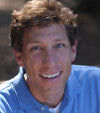 what gives, kiddo?
what gives, kiddo?
Believe it or not, children all over the world don’t like some of the things their parents did at the same tender age. Why? Here’s the breakdown:
- Changes. The camp may have changed. Like any organization, camps evolve. Some get better with time; others get worse. Who knows—from a camper point of view—what direction yours took over the past 25 years?
- Dreams. You have romanticized the experience. I promise. You remember the s’mores, the skit nights, and the sunny days. But do you also remember the homesickness, the wedgies, and the rainy days?
- Quirks. Your child is not you. Many children resemble their parents in mannerisms, food preferences, and intelligence. Fewer resemble their parents in personality, activity preferences, and social style. The camp that fit your interests and developmental level may not fit your child. At all. Maybe ever. And that’s OK.
- Apples. One bad apple can spoil the bushel. The camp may have improved, your recollection may be accurate, and your child may have been a perfect fit. But…last summer may also have been ruined by a rare cruel cabin mate or (less rare) undertrained counselor.
So now what? These and other reasons for a misfit may make sense out of mystery, but you still need options for next summer. Here are a few good ones:
- Breathe. Take a deep breath. Respect the individuality of your child. Honor the ways in which he or she is different from you. It’s exciting to think about the fascinating directions his or her life will take.
- See. Keep an open mind. Maybe your child will return to the camp of your childhood and love it next summer; maybe he or she will attend a different camp. Heck, maybe camp is not even in the cards.
- Invite. Know the research. Children who feel forced to go to camp are much more likely to experience intense homesickness than those who feel a sense of agency. Involve your child in all of the big and small decisions about how he or she spends the summer.
- Learn. Engage your child in a series of low-key, candid conversation about his or her experience. You know they didn’t like it, but now is the time to find out more. Ask: “What were some of the best things about camp?” and “What were some of the worst things about camp?” and “What might make a camp experience better next summer?”
- Listen. Listen carefully, without defending your camp. The key to finding the truth about last summer is to not contradict your child. His or her experience was their reality. Respect that by simply listening. Do not offer explanations, solutions, or—worse yet—minimizing the intensity of their dislike with phrases such as, “It couldn’t have been that bad” or “I know Camp X and I’m sure it wasn’t like that.”
If camp is still under consideration, use the two-column technique and list (with your child) the pros and cons of camp, in general. Then, talk about whether your camp is worth a second try. If there was something specific and solvable, call the camp director (with your child) and see what can be done to remediate the problem your child has identified.
If camp is not under consideration, table it for now. Use a different piece of paper and list some other options. Music lessons? Parks and rec programs? Sports clinics? Volunteer work? Art classes? Your openness to some non-camp choices will actually cause your child to reconsider a summary dismissal of camp. If you space out a series of conversations about the summer, you will further depressurize the topic and open your son or daughter’s mind up to different possibilities. And yes, that includes the possibility of returning to the camp you enjoyed so much as a child.
Whatever you and your child decide—together—about next summer, you can be assured that he or she will get a lot out of the respect you’ve shown; the partnership you’ve formed; the freedom you’ve granted. Lay out the menu of options, but don’t force-feed any one choice or it’s likely to backfire. True growth involves self-actualization. And whether that happens at your camp is less important than whether it happens at all.
Enjoy the summer!

Dr. Christopher Thurber
Doctors Chris Thurber and Jon Malinowski are the authors of ‘The Summer Camp Handbook’, an excellent source of expert advice about choosing camps, packing essential camp gear, and emotionally preparing your child (as well as yourself) for the approaching summer camp season. Check it out for yourself right here. Thanks for reading.
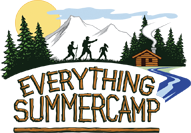
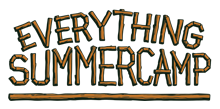
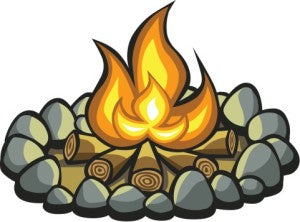 First of all, you should only build fires in a designated fire pit that is provided for you in a state park or one that belongs to your family in your own backyard. If a camp site does not provide you with fire pits, check with the park to see if digging your own pit is allowed. Some may allow it while others do not.
First of all, you should only build fires in a designated fire pit that is provided for you in a state park or one that belongs to your family in your own backyard. If a camp site does not provide you with fire pits, check with the park to see if digging your own pit is allowed. Some may allow it while others do not. t preparing your pit. Place your smallest pieces of dry wood on the bottom and lay your firewood on top of each other around the small twigs and other kindling. It’s smart as you get your fire going (and as it burns) to have a bucket of water close by as well as a shovel.
t preparing your pit. Place your smallest pieces of dry wood on the bottom and lay your firewood on top of each other around the small twigs and other kindling. It’s smart as you get your fire going (and as it burns) to have a bucket of water close by as well as a shovel.
 YES SUGAR! My counselor and friends made me feel special. The best part about camp is the FREEDOM. We got to choose what we wanted to do each day. I like playing
YES SUGAR! My counselor and friends made me feel special. The best part about camp is the FREEDOM. We got to choose what we wanted to do each day. I like playing  basketball, which I played a lot with my friends. I actually had fun at camp, I am looking forward to next year and told my mom to sign me up for 4 weeks this time!”
basketball, which I played a lot with my friends. I actually had fun at camp, I am looking forward to next year and told my mom to sign me up for 4 weeks this time!” Not only is today ‘Do Something Nice Day’, but there are four other days on the matter—three of which we’ve posted about on this Blog! January 24 is ‘Compliment Day’, a great day to spread your natural sunshine by saying something nice about someone. February 17 is ‘Random Acts of Kindness Day’ in which you do something nice for someone. There’s also ‘Make Someone’s Day Day’ on October 29 and ‘World Kindness Day’ just a couple weeks later on November 13.
Not only is today ‘Do Something Nice Day’, but there are four other days on the matter—three of which we’ve posted about on this Blog! January 24 is ‘Compliment Day’, a great day to spread your natural sunshine by saying something nice about someone. February 17 is ‘Random Acts of Kindness Day’ in which you do something nice for someone. There’s also ‘Make Someone’s Day Day’ on October 29 and ‘World Kindness Day’ just a couple weeks later on November 13. can do for one another. For the ‘Make Someone’s Day Day’, I discussed altruism and how a selfless act can actually benefit not just the recipient, but you as well (as the doer of the good deed).
can do for one another. For the ‘Make Someone’s Day Day’, I discussed altruism and how a selfless act can actually benefit not just the recipient, but you as well (as the doer of the good deed).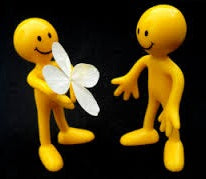
 campers like yourself.
campers like yourself.